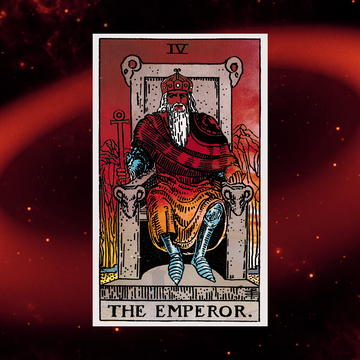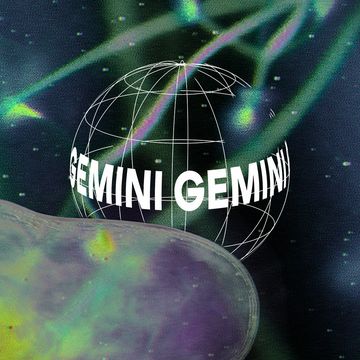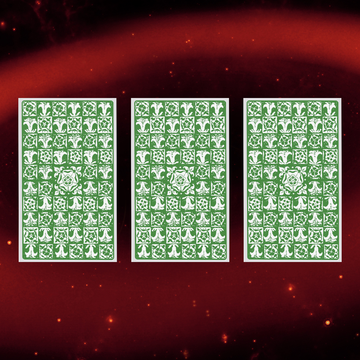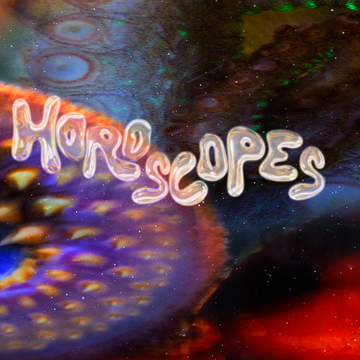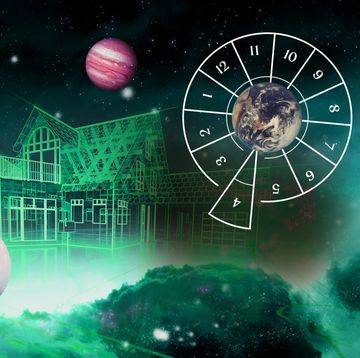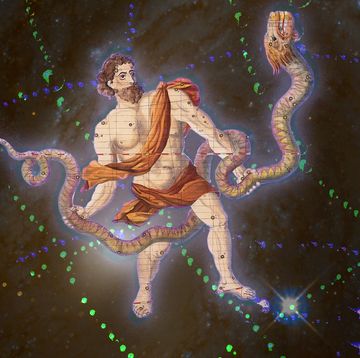"What's your sign?" a woman asked me at a business meeting that would determine if I would be hired for a project involving a lot of time and a lot of money. She had my résumé and references; why look skyward? "Pisces," I replied. "Ah, you're emotional!" she responded. In fact, the very same day, someone who's known me more than 20 years told me I was singularly unemotional. Whom to believe — the best friend or the stars?
Nearly every day, I hear people invoke the supernatural: astrology, telepathy, UFOs, etc. If I suggest that I'm skeptical about such things, the conversation can get awkward. I fear I have tanked fledgling friendships by questioning the reliability of, say, auras. When someone at a cocktail party brings up their recent "super accurate!" psychic reading, I hear myself saying conversation-killing things like, "Have you read Monster Midway? It explains how cold reading works." It's official: I've become a buzzkill.
What annoys me most, perhaps, about proponents of esoterica is that I used to be one. At 14, my friends and I wore pentacles and burned candles and wondered which one of us was most likely to go all Fairuza Balk in The Craft. I read tarot cards. My then-boyfriend did a rune reading to help me weigh college choices. When I had a cold, I put minute amounts of echinacea into my water, taking umbrage when my cousin referred to them as "cult drops."
But doubt crept in. Once, a women's magazine I read as a tween ran the same horoscopes two months in a row, and when a reader pointed this out, an editorial note said something like, "You know this stuff isn't real, right?" It was like how I'd felt finding out fromSuperfudge about Santa. Ultimately, my gullibility was dealt a deathblow by a University of Texas at Austin college course called "pseudoscience."
"Pseudoscience" is something that pretends to be science but isn't — for example, because its claims are demonstrably bogus, or because they're immune to proof or disproof. The class addressed subjects like spirit photography, palmistry, and alien abduction. The professor, Dr. Rory Coker, who is also a magician, lay down on a bed of nails to demonstrate how easy it is. He showed us how to stage flying-saucer photographs and séances. He also explained that pseudoscience has been dangerous: Phrenology (head shape as key to character) has been used to justify racial prejudice. Belief in psychic surgery has kept people with treatable diseases from getting medical attention.
That class blew my mind and made me a fan of myth-busters like, well,MythBusters, as well asJames Randi,Bill Nye,Penn & Teller,Snopes, and the guys atScam School. And it made it hard to ever see the Loch Ness Monster and Bigfoot pictures again without laughing. Learning from that class how the sausage was made, it became harder to stomach it — and to watch others dig in.
It's one thing for me to ignore my own horoscopes. But when faced with an ardent believer in something from that pseudoscience class's syllabus — astral projection, say, or dowsing — I wind up in a social graces vs. social conscience showdown. What should I do? Nod and smile? Or quote Carl Sagan about how extraordinary claims require extraordinary evidence?
Many of my friends do holistic and homeopathic treatments, but these days I'm good with Western medicine, which has saved my life twice — once when my appendix burst and once when I needed a C-section. But more power to the adventurous. Usually I just chalk it up to a different level of curiosity about the New Age. And yet, the other day, when I learned someone I knew was going in for Reiki (essentially "energy field" massage), I flinched. "Does that work?" I said. "I though it had kind of been debunked?" He seemed offended. In that moment, I wished that either he had taken that UT class or that I hadn't.
In practice, I see a spectrum. Some examples of pseudoscience are vicious (like medical hoaxes preying on the vulnerable) and others are silly and sometimes entertaining (like pretending our birth month has a bearing on our compatibility). And I get that logic is often no match for superstition or persuasive myths. If I spill salt, I still reflexively throw some over my left shoulder (thanks, mom), and I instinctively remove hats from the top of beds (thanks, transformative preteen viewing of Drugstore Cowboy). I find children's enjoyment of the Tooth Fairy, the Easter Bunny, and Harry Potter to be delightful. Those things make their lives more exciting, and they don't mean those kids can't grow up to be physicists. Maybe innocuous forms of pseudoscience are just the grown-up version — an easy way to inject a little magic into daily life, to willfully suspend disbelief, to escape reality.
And yet, I couldn't help but wonder, when I was asked for my sign in that job interview, if I should have said something about how maybe astrology isn't the best way to make important decisions, or about how some people think that such conflation of science and not-science is why America lags in the STEM fields, or about how she should judge me strictly in the third-dimensional realm. Then when I didn't get the job, I wondered if I should have just lied and said Taurus.
Follow Ada on Twitter.



